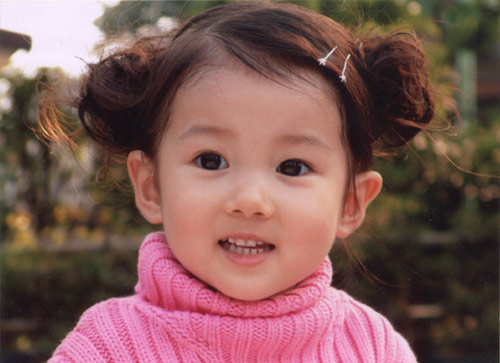|
查看原文
Unlike other East Asian nations where preference for sons over daughters still prevails, gender preference for children in Japan has progressively shifted from son preference to visible daughter preference over the past few decades.
The extent to which individuals’ child gender preference is shaped by their gender role attitudes and evaluate whether daughter preference. It is a reflection of convergence or persistent divergence in gender roles in Japan.
Data from the Single Persons subset of the 11th Japanese National Fertility Survey conducted by the National Institute of Population and Social Security Research in 1997 suggests that the effect of gender role attitudes on one’s child gender preference differs for men and women. Overall, while daughter preference is associated with nontraditional gender role attitudes for men, daughter preference is associated with traditional attitudes for women.
The tendency for preference for daughters among the Japanese has been revealed by a number of large-scale national surveys. Empirical papers on the topic have also been published in Japanese journals. Research on gender preference for children in Japan is in fact not a new area within the Japanese sociological and demographic literature.
Gender preference for children in Japan has progressively shifted from son preference to visible daughter preference over the past few decades. This may appear shocking to sociologists and demographers since it has been long believed that preference for sons over daughters prevails in populations of East Asia. There is a large volume of published research that uncovers parental son preference in countries such as China and the Republic of Korea. However, not much research has been published on the state of this issue in Japan. Such chronic lack of interest is perhaps attributable to: (1) the assumption that Japan is similar in its gender preferences for children to its neighbors because of its geographic proximity and shared Confucius background; and/or (2) the presumption that the Japanese exhibit less or no son preference given its higher level of economic development, thereby making it less appealing to examine. However, because daughter preference has become evident in Japan, it is time to give more attention to the issue.
The issue of parental gender preferences for children has implication not only for human rights but also for its demographic impact. In developing countries, salient son preference causes sex-selective abortion, female infanticide, or female neglect. Also, we know from research on China that son preference coupled with strict fertility regulations has raised the issue of imbalanced sex ratios at birth. Thus, an emergence of skewed sex ratios at birth is a likely scenario if daughter preference continues to be common in a society with declining fertility.
In the context of Japan’s very low fertility1 where most women have only one child, it may become crucial for their first or only child to be of the gender they desire. Because today’s reproductive technologies can hypothetically give parents the ability to control the gender of their offspring, with the presence of daughter preference it is likely that individuals will turn to such technologies to ensure daughters. Therefore, gender preference for children in a low fertility nation needs to be addressed for its potential demographic consequences as well as its implications for ethical issues and human rights concerns.
|
查看译文
在其他东亚国家重男轻女趋向仍然盛行的今天,日本过去几十年的儿童性别偏好已逐步从重男轻女转向明显的女儿偏好。
个人的子女性别偏好程度是由性别角色态度造成的,它决定女儿偏好存在与否。反映了日本性别角色分歧的收敛或持续。
1997年,日本国家人口和社会保障研究所进行的第11次国家生育率调查的数据表明,性别角色态度对男性和女性的子女性别偏好影响不同。总的来说,男性的女儿偏好受非传统性别角色态度影响,女性的女儿偏好则与传统观念有关。
许多大规模的全国性调查已经揭示了日本人倾向于喜欢女儿,日本杂志上也发表过这一主题的实证论文。实际上,日本儿童性别偏好研究已不是日本社会学和人口文学中的新领域。
过去几十年内,日本的儿童性别偏好已逐步从重男轻女转向明显的女儿偏好。这个结论可能会令社会学家和人口学家震惊,因为人们一直认为东亚人群中重男轻女倾向普遍。大量已发表研究揭示了中国和韩国等国的父母重男轻女倾向。然而,关于日本重男轻女问题状况的研究发表很少。也许这种兴趣的长期缺乏是由于:(1)日本儿童性别偏好与其邻国相似的假设,因为日本与其邻国之间的地理距离短且共有儒学背景;(2)日本很少或不表现出重男轻女倾向是由于经济发展水平较高的假设,因此日本的研究吸引力较小。然而,由于日本的女儿偏好愈加明显,现在已是更多地关注这个问题的时候。
家长的儿童性别偏好问题不仅影响人权,同时也对人口有影响。在发展中国家,突出的重男轻女倾向造成了性别选择性堕胎、杀害女婴或忽视女性等行为。同时,我们从中国研究中知道,重男轻女现象加上严格的生育规定造成了中国性别出生率不平衡的问题。因此,如果一个生育率下降的社会存在普遍而持续的偏女儿倾向,则这个社会很可能出现性别出生比例失衡的现象。
在日本生育率非常低的背景下,大多数女性都只有一个孩子,所以第一个或唯一的孩子的性别是他们所期望的性别可能变得至关重要。如今的生殖技术能使父母有能力控制他们后代的性别,所以女儿偏好的存在导致人们很可能用这类技术来确保得到女儿。因此,低生育率国家需要解决儿童性别偏好问题,以避免其潜在的人口以及其伦理和人权方面的不良影响。
(译者 英语1104陈睿馨 编辑 丹妮)
扫一扫,关注微博微信
 
|

